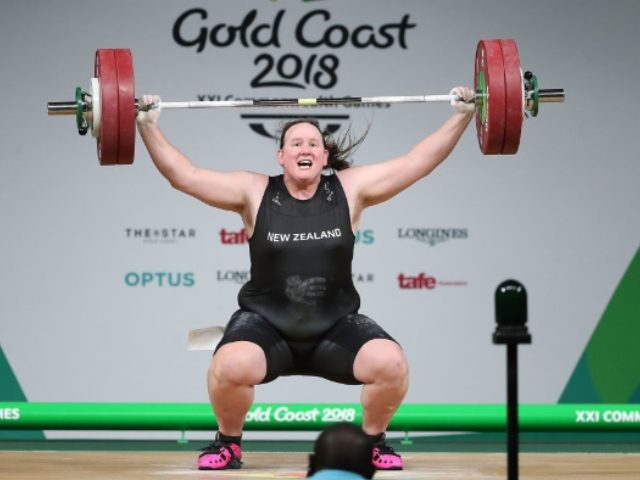The 2021 Olympic Games in Japan will make history not for sport but over the controversy of biological men who consider themselves transgender women to compete against female athletes for the first time.
The International Olympics Committee has technically allowed biological men to compete against women since 2015 if the trans competitor has had hormone treatment and has suppressed their testosterone level for at least a year before competing.
But this year, the spotlight is not on the usual popular sports of track and field or swimming but weightlifting, where a 43-year-old man who decided to start living — and competing — as a female in his mid-30s will represent New Zealand.
Two more men who consider themselves women are traveling to Japan: Stephanie Barrett, a Canadian archer. Chelsea Wolfe, an American cyclist, and Tifanny Abreu, a Brazilian volleyball player.
The Economist laid out the argument that biology is the reason critics of the trend have science on their side:
Sex is one of the most powerful and consistent predictors of performance. Males have significant advantages over females in nearly every sport (see chart). In running, they are consistently around 10 perent faster than females, whether in sprints or the marathon. In Ms Hubbard’s sport of Olympic weightlifting, the gap is 25 percent or more, even after correcting for an athlete’s size. The Olympic record for females in the 69kg bodyweight category, for instance, is a total of 286kg. For males of the same weight, it is 357kg. Some teenage males outperform women’s world-record holders. Without sex categories, females would be absent from most elite sport.
The male sporting advantage is rooted in biology. Males have bigger muscles than females. With no need to accommodate childbirth, their skeletons are better adapted for running. They are taller, have denser bones, bigger hearts and higher levels of haemoglobin, the molecule which shuttles oxygen around the body. Those advantages stem from male puberty, during which levels of testosterone—the main male sex hormone and the original anabolic steroid—rise sharply. With the importance of testosterone in mind, the International Olympic Committee ruled in 2015 that trans women would be allowed to compete in women’s events provided that they took drugs to suppress their testosterone levels for at least a year before the competition. The hope was that would remove the male advantage, allowing trans women to compete in their preferred category while keeping things fair for the biological females against whom they would be competing.
But … recent scientific reviews—aggregating data from other studies—suggest the IOC’s compromise does not work, because many of the advantages conferred by male puberty are permanent. One of the papers found that testosterone suppression does indeed reduce haemoglobin levels to those often found in females. But both found that the effect on strength and muscle size was far smaller—perhaps around 5%, even after more than a year of suppression. That is far less than the advantage granted by being male in the first place. And no amount of hormone therapy can reduce the size of an athlete’s body. Last year, such evidence persuaded World Rugby that it was both unsafe and unfair to let trans women play in the international women’s game. The IOC, for its part, says it is reviewing the evidence, but that amending the rules so soon before the Tokyo games would be unfair. It has promised new guidelines once the Olympics are over.
The review in the British Journal of Sports Medicine concluded:
In transwomen, hormone therapy rapidly reduces Hgb to levels seen in cisgender women. In contrast, hormone therapy decreases strength, LBM and muscle area, yet values remain above that observed in cisgender women, even after 36 months. These findings suggest that strength may be well preserved in transwomen during the first 3 years of hormone therapy.
Follow Penny Starr on Twitter or send news tips to pstarr@breitbart.com.

COMMENTS
Please let us know if you're having issues with commenting.